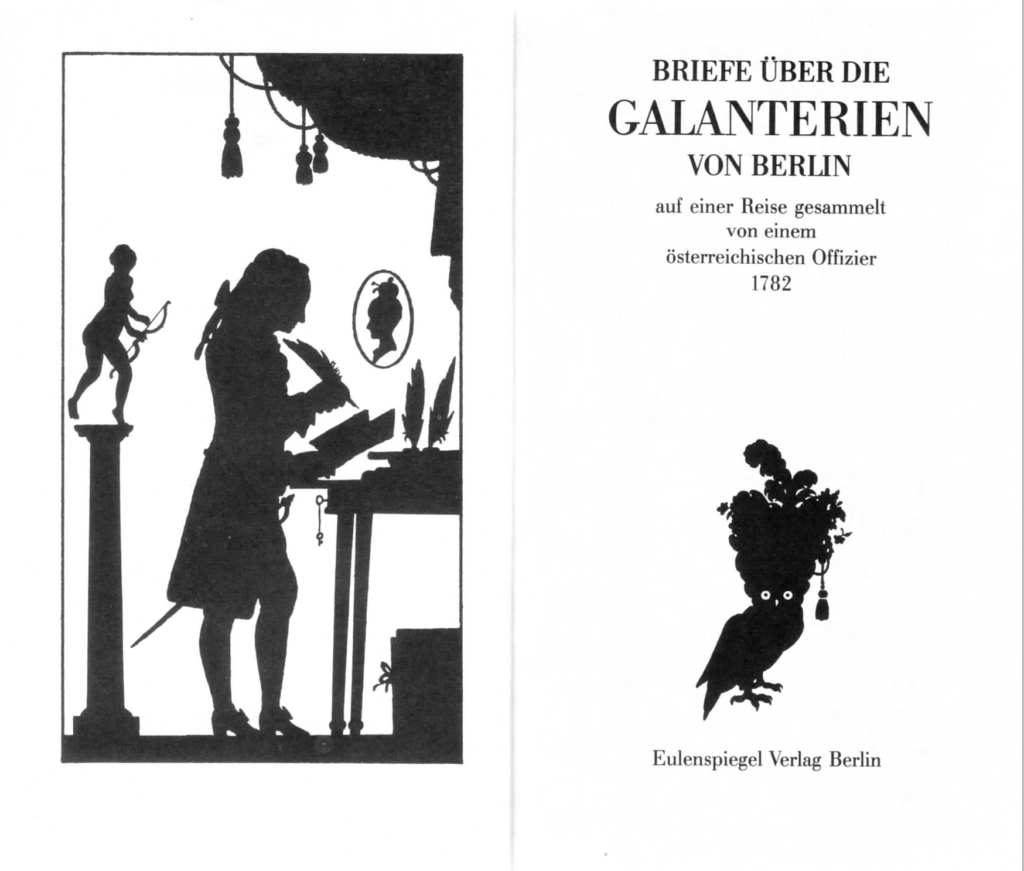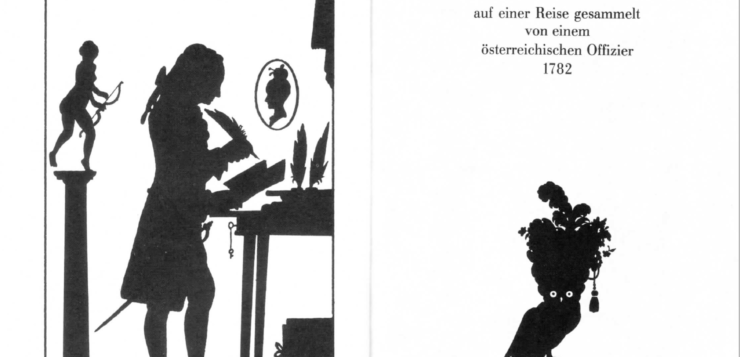HISTORIES OF HOMOSEXUALITY in the Germanic world tend to begin in the middle of the 19th century. It’s where the term homosexuality was coined, by Karl-Maria Kertbeny, in 1867. It’s where political activism began with Karl Heinrich Ulrichs (1825-1895) and continued with Magnus Hirschfeld into the early 20th century. Seldom do historians dip further back. This is surely an oversight, for the Age of Goethe was the height of the Romantic cult of friendship, and it’s a short leap from there to homoerotic relations and sexual possibilities. One tipoff that this fixation on “friendship” went beyond the conventional definition is that it was accompanied by a re-awakened interest in Greek mythology and Greek love in all its forms. In fact, there are passages in Goethe’s own writing that belong in any gay anthology.
Briefe über den Galantieren von Berlin, a travelogue by an anonymous Austrian officer published in Vienna in 1782, might make it into such an anthology, albeit in a different section. For this eyewitness account of sexual mores observed during a sojourn of fifteen months in Berlin is far from lyrical in its praise. Indeed, it passes stolidly reactionary judgment on Berlin’s “excesses”—or purports to do so, expressing horror in rhetorical flourishes on every page. For us, what matters is not what this anonymous author thinks about these goings-on but the fact that he reports on their existence.

These thirty letters, and in particular the three we have translated (starting on page 21), deal specifically with “sodomy” and “pederasty” and offer clues as to why silence was the watchword throughout the 18th century. Perhaps the key factor was the law, an issue addressed by Letter 16. Lo and behold, this staunchly conservative observer quotes at length the 18th-century Italian criminologist Cesare Beccaria (1738-1794), a leading thinker of the Enlightenment. Beccaria argued that sodomy was not a crime but instead a weakness of “animality.” The enlightened absolutism of Kaiser Joseph II was reversing the censorship that had prevailed under his predecessor, the puritanical Maria-Teresa. Under Joseph, Austria became the first European land to abolish the death penalty for sodomy in 1787.







